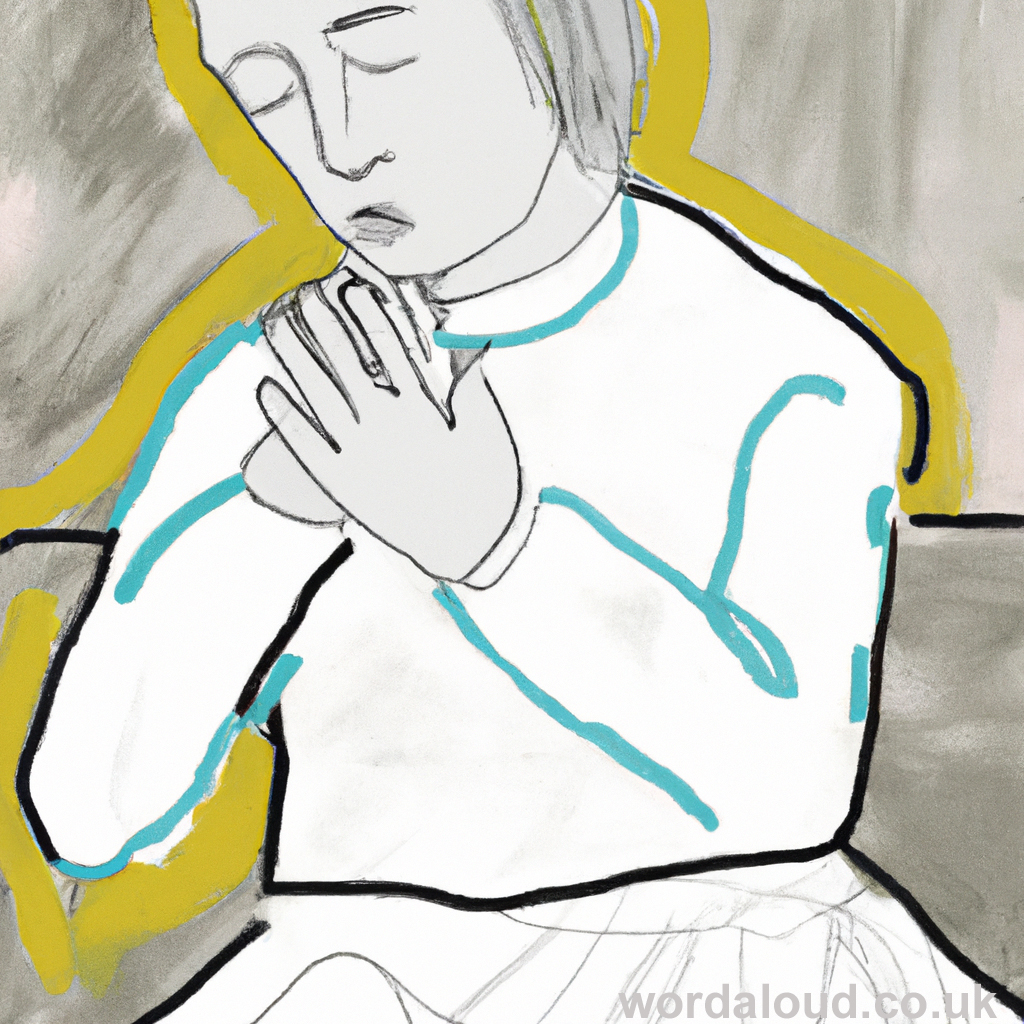Christian Art | Jesus Crucified | Stabat Mater
Office Of Readings | Week 26, Tuesday, Ordinary Time | From The Letter Of Saint Polycarp To The Philippians | Jesus Christ Set Us An Example In His Own Person
‘Jesus has set us a personal example.’
Saint Polycarp continues his reflection on the Christian life and the duties of the Church’s ministers. His words are both pastoral and deeply practical. He insists that presbyters — that is, priests or elders — must mirror the compassion and mercy of Christ himself. They are to care for the sick, the poor, widows, and orphans, the most vulnerable members of the community. Polycarp’s vision of ministry is not one of authority alone but of service, modelled on the Good Shepherd who lays down his life for the sheep.
Polycarp also warns against the dangers that can corrode a pastor’s heart: anger, prejudice, greed, and rash judgement. His warning reflects the early Church’s keen awareness that leaders are not exempt from temptation, and that mercy must guide their dealings with others. ‘We are all debtors through sin,’ he reminds them — a humbling truth meant to keep every Christian, whether pastor or layperson, mindful of their dependence on divine grace.
The letter turns to the theme of forgiveness. If we pray for mercy, we must ourselves forgive. Polycarp recalls the words of Jesus about the need to forgive others if we hope to receive God’s forgiveness. To live ‘under the eye of God’ is to live transparently, aware that every deed and motive is known to Him.
Regarding matters of doctrine, Polycarp warns that the Church must guard herself against false teachers — those who deny the incarnation of Christ, the power of the cross, or the reality of the resurrection and judgement. Such teachings, he says bluntly, belong to the antichrist and to the devil. These were not theoretical threats but real controversies that divided early Christian communities. For him, the measure of truth is simple: fidelity to what ‘was handed down to us from the beginning’ — the apostolic faith.
Polycarp reminds us that Christ himself, the sinless one, bore our sins on the cross. Jesus’ endurance and faithfulness are the pattern for our own. To follow Jesus is to accept suffering with steadfastness, to persevere in righteousness, and to hold fast to the hope that is in him. Thus, Polycarp unites doctrine and moral life, belief and example. The true Christian is not merely one who confesses right belief, but one who lives according to the self-giving love of Jesus — ‘the personal example he has given us.’

From The Letter Of Saint Polycarp To The Philippians | Jesus Christ Set Us An Example In His Own Person
Presbyters should be sympathetic and merciful to everyone, bring back those who have wandered, visiting the sick; they must not neglect widows and orphans, or the poor, ever providing for what is good in the sight of God and of men. They should refrain entirely from anger, human respect and prejudice; avarice should be wholly alien to them. Nor should they be rash in believing something said against another, nor too severe in judging others, since they know that we are all debtors through sin.
If, then, we pray to the Lord to forgive us, we must in turn forgive. For we live under the eye of our Lord and God, and we must all stand before the judgment seat of God, each to give an account of himself. Let us then serve God with fear and awe. The Lord’s command is also the command of the apostles who preached the Gospel to us, to say nothing of the prophets who foretold the Lord’s coming. Our observance of what is good should be meticulous, avoiding anything that might cause another to stumble; we must shun false brothers and those who assume the Lord’s name hypocritically and lead the unwary into error.
For anyone who does not confess that Jesus has come in the flesh is the antichrist. And anyone who refuses to admit the testimony of the cross is of the devil. Whoever perverts the Lord’s words to suit his own desires and denies that there is a resurrection or a judgment is the firstborn of Satan. So let us abandon the folly of the masses and their false teaching, and return to the teaching that was handed down to us from the beginning. We must be alert in prayer, constant in fasting; and in our prayers let us beg God, who sees everything, not to lead us into temptation. As the Lord has said: The spirit is willing, but the flesh is weak.
So let us persevere in the pledge of our righteousness and in our hope, that is, in Christ Jesus. In his mouth no hint of guilt was discovered; he committed no sin and yet bore our sins in his own body on the tree. Rather, he endured everything for our sake so that we might live in him. Let us then imitate his constancy; if we should suffer because of his name, let us give him that glory. For this is the personal example he has given us, this is the object of our faith.
Christian Prayer With Jesus Christ
Lord Jesus Christ,
you bore our sins in your body upon the cross
and showed us the path of patient endurance.
Grant that we may follow your example with steadfast faith,
forgiving as we are forgiven,
serving with mercy those in need,
and holding fast to the truth handed down from the apostles.
Keep us faithful in trial and gentle in judgement,
that by your grace we may live in you
and give glory to your holy name.
Amen.
Glossary Of Christian Terms
Presbyters – Early Church leaders or elders responsible for guiding and teaching the Christian community; later known as priests.
Widows and orphans – A biblical phrase for the vulnerable and defenceless; caring for them is seen as a mark of true religion (cf. James 1:27).
Judgement seat of God – A biblical image (Romans 14:10) expressing the final divine judgement before which every person must give an account of their life.
Antichrist – A term used in the New Testament (1 John 2:18) for anyone who denies the truth about Jesus Christ, especially his incarnation.
The cross – The central symbol of Christian faith, signifying both Christ’s suffering and the victory of redemption.
Apostolic teaching / handed down from the beginning – The faith transmitted by the apostles and preserved by the Church through Scripture and tradition.
The spirit is willing, but the flesh is weak – A saying of Jesus (Matthew 26:41) acknowledging the human struggle between good intentions and human frailty.
Constancy – Firmness of faith and steadfastness in trial, especially in the face of persecution.








